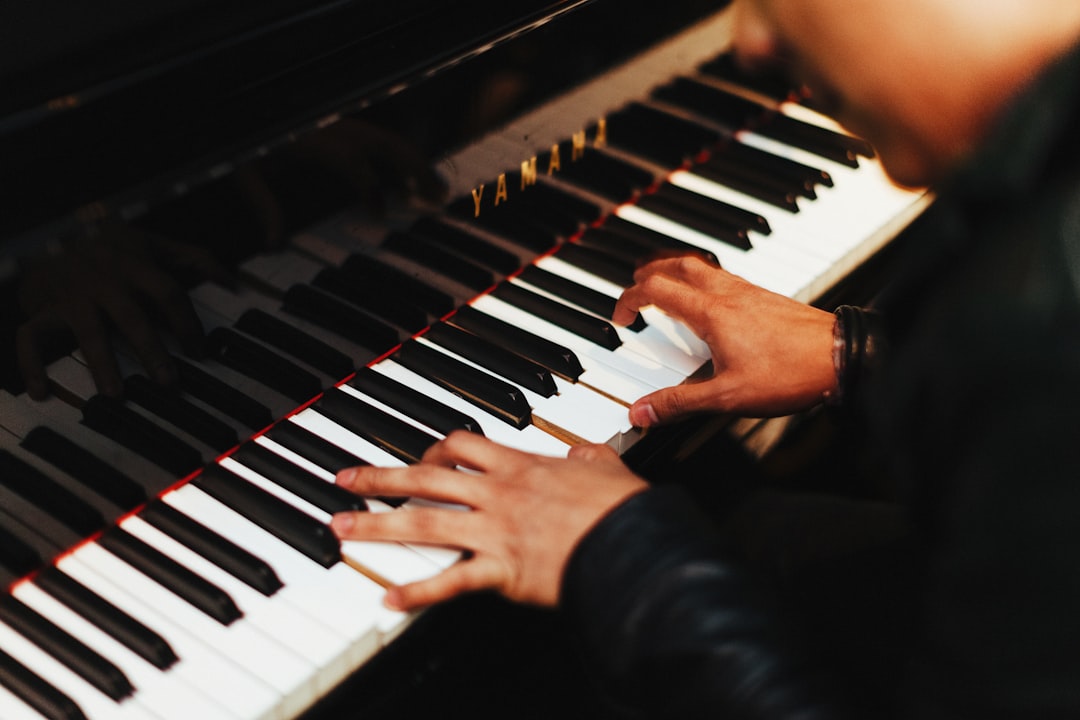How Long Should Piano Lessons Be?
Finding the right piano teacher can be difficult and time consuming. How do you know if they're qualified? What if they don't have enough experience? Not to worry! We've got answers for all your questions, including this one: how long should piano lessons be? Keep reading to learn how we can help you find the right piano teacher and make sure that your lessons don't go on forever (or too long).

What Is the Best Length for Piano Lessons?
The best length for piano lessons depends on your skill level, goals, schedule and budget.
Let's take a look at some of the factors that can influence how long your piano lessons should be:
Skill level: If you're just starting out on the piano and have little to no experience with it, it's best to start with shorter lessons (30 minutes or less) until you gain confidence and build up some dexterity in playing. This way, you won't get burned out too quickly and will still have room for improvement each time you meet with your teacher.
Goals: If you're trying to learn specific pieces of music or certain songs by heart (as is often done in classical music), then shorter sessions might not be enough time for this purpose because they usually only last 30 minutes each session anyway. On the other hand if all your goal is just learning basic theory then there's no reason why longer periods wouldn't suffice such as 60-90 minute sessions instead!

How Long Should Piano Lessons Be for Beginners?
As a beginner, you should take 30-minute lessons. You may be tempted to spend more time on piano because you have so much to learn and not enough time to do it in, but this is actually counterproductive for beginners. Spending too much time on a lesson will make the material less memorable and the student more likely to give up when they reach a difficult point later on in their playing career.
Beginners should focus on learning the basics in a short amount of time so that they can progress quickly from beginner status into intermediate territory (and beyond). This can be done by spending less time working on theory and sight reading skills, since these are skills that are developed over years of practice rather than days or weeks of lessons with an instructor. Instead, focus your efforts toward learning songs—this way you'll be able learn something tangible right away instead of struggling through difficult concepts which could distract from your main goal: playing music!

How Long Should Piano Lessons Be for Advanced Students?
For advanced students, the length of lessons may vary depending on how quickly and effectively you're progressing.
If you're already playing in a band or have some experience with theory and music history, your teacher might schedule more in-depth sessions that go beyond the fundamentals.
Your lesson length should also be determined by whether or not your instructor is teaching you "by ear." If they are teaching by ear, then they will focus more on learning new songs and improvising rather than just learning scales. This means lessons will probably be shorter than if they were going over notes and chords with a metronome every time.

Will there be a lot of practice?
In the beginning, you may be assigned some very straightforward exercises that can be completed in a matter of minutes. As you progress, however, the amount of homework will increase and become more demanding. In general, it’s best to keep your expectations realistic; don’t expect to master a difficult piece right away if your instructor hasn’t seen evidence of your hard work at home.
In addition to practicing what you learn in class at home (see below), there are other useful ways to help improve as a performer or composer:
Listen critically – listen carefully and try to understand why certain musical passages work while others do not. Remember that “good music is an art; bad music is an accident."* Collaborate with other musicians – working together on pieces helps everyone get better faster.* Analyze what makes one piece better than another – this can help identify specific strengths and weaknesses for performance or composition

Should I Take Private or Group Lessons?
Private lessons are more expensive, but you'll have the opportunity to work on your own strengths and weaknesses without the distraction of other students. For private lessons in Redmond, check out our school providing piano lessons in Redmond.
Group lessons offer a more affordable option if you're looking for a social experience, but they can also be frustrating if the instructor doesn't tailor the lesson plan enough to fit everyone's needs.
If you've been playing with an instrument for years and would like some personalized attention, private lessons are ideal—but if this is your first time playing an instrument or learning piano music, group lessons may be better suited for getting started.

The best lesson length depends on your skill level.
How long should you take piano lessons for beginners?
As a beginner, 3-4 months is the minimum amount of time needed to learn the basics. That being said, how long a beginner will take depends on their dedication and motivation level. Some people are able to memorize songs after one or two weeks while others can take up to 6 months! If you think that it's going to be challenging enough just learning the basics without having anything else thrown into the mix (like sight reading), then I would suggest starting with something simple like "C + G." This exercise will help develop your ear as well as introduce some basic chords which are used in many popular songs. If nothing else comes out of this exercise except learning how to play C Major without looking at sheet music then it was worth every minute because knowing how to read music opens up a whole new world when learning an instrument!
Adults tend not want to spend their free time practicing unless there is something in return such as increased confidence or better job opportunities just waiting around corner once those pesky notes no longer look like black dots on white lines! So what adult wants most from taking lessons? We already know some adults may want better job opportunities but what about those who simply enjoy playing music? Is there any difference between an adult learner versus child? Not really...but adults tend not want practice unless there's something in return such as increased confidence or better job opportunities just waiting around corner once those pesky notes no longer look like black dots on white lines!

Learning the piano is a lifelong process, so it’s important to find a teacher who can help you progress at your own pace. If you want to learn how to play the piano, it’s important that you find a good teacher. While there are many factors that determine what length of lessons will be best for you and your child, most music teachers recommend starting out with weekly lessons for at least six months before moving on to biweekly ones or taking them three times per week.



